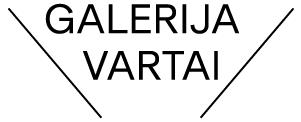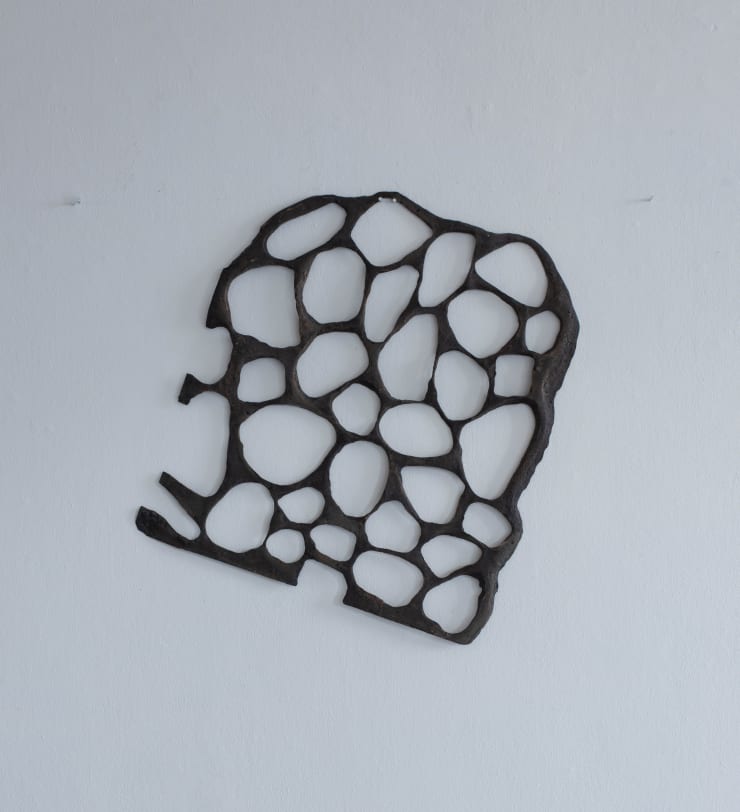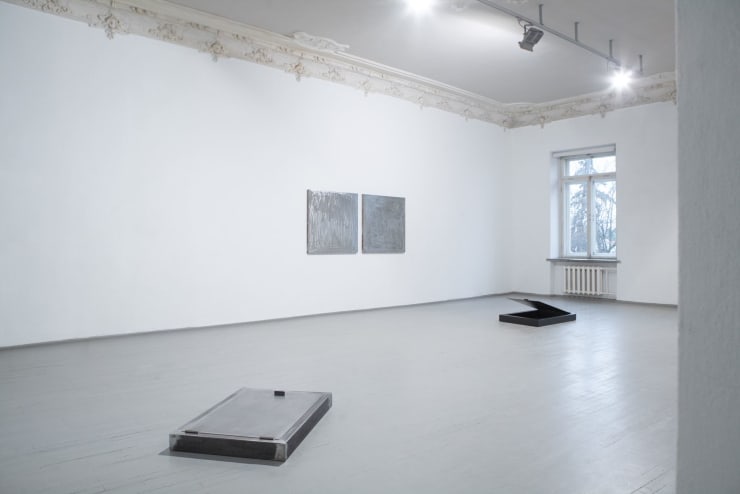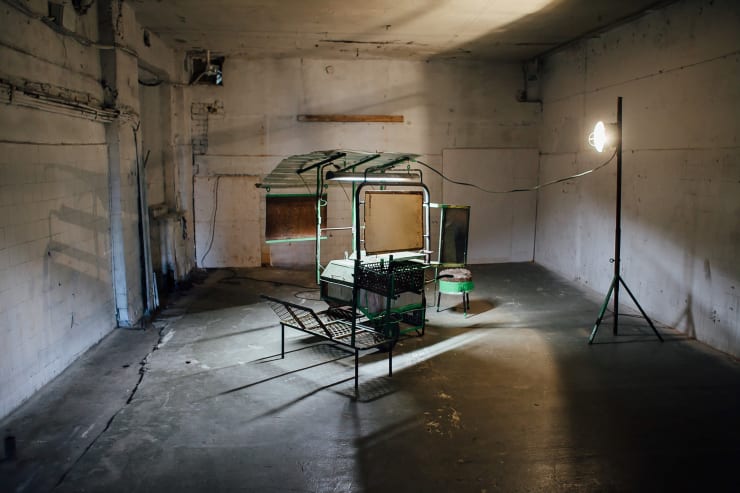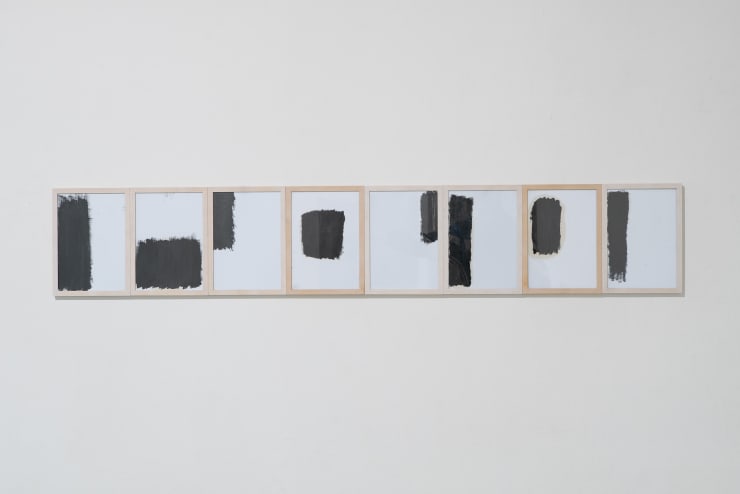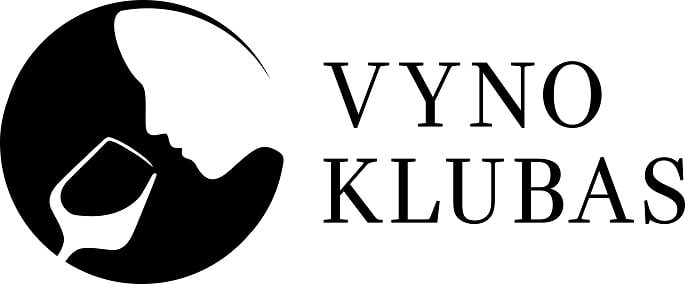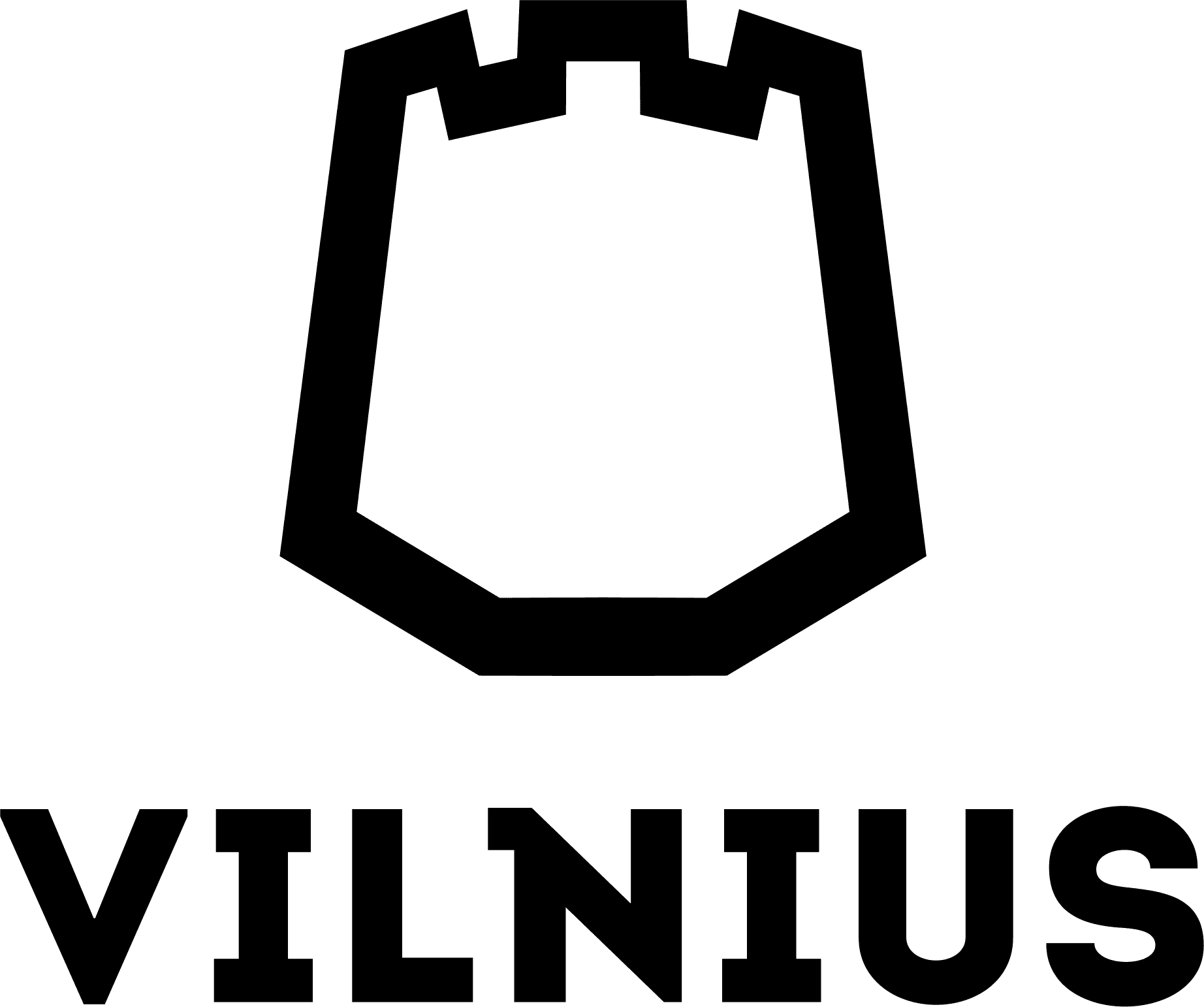An Unfinished Project: Willem Boel, Konstantinas Bogdanas, Andreas Golinski, Yeal Hersonski, Ariel Schlesinger, Peter Wächtler, curator Ory Dessau
The exhibition "An Unfinished Project" is in conjunction with the Vilnius Gaon and the Jewish Year in Lithuania.
3D exhibition tour
Participating artists: Willem Boel, Konstantinas Bogdanas, Andreas Golinski, Yeal Hersonski, Ariel Schlesinger, Peter Wächtler
The group exhibition An Unfinished Project seeks to whirl our conventional divisions of time, articulating the role of the past as that which does not pass – as an ongoing event crossing through the present towards the future. The problematized time tenses of the exhibition are manifested in different ways. Some of the works convey a sense of anticipation and are experienced as a sign of future occurrence; some create a certain image of the past which they reenact, bringing back to life; others imply movement, addressing and practicing a cyclical approach to time, or appear in the ‘here and now’ as an act of commemoration and revivification of traumatic moments in history.
An Unfinished Projects brings together artists of various contexts and nationalities – Lithuanian, German, Belgian, and Israeli – to participate in an orchestrated scenario reflecting on historical and material reality, while amounting to an alternative universe.
Principally Funded by Lithuanian Council for Culture and The Ministry of Culture of the Republic of Lithuania.
We are gratefeful to Dvir Gallery and Gregor Podnar gallery for collaboration
Patron
Renata and Rolandas Valiūnas
Gallery supported by
Vilnius City Municipality
Lietuvos Rytas
Vilma Dagilienė
Romas Kinka
Art Fund
Ekskomisarų biuras
“An Unfinished Project”
Curated by Ory Dessau
Participating artists: Willem Boel, Konstantinas Bogdanas, Andreas Golinski, Yeal Hersonski, Ariel Schlesinger, Peter Wächtler
2020.12.17 – 2021.03.31
The title “An Unfinished Project” serves as a reflection on life with no certainty, conclusion, or closure. However, it also indicates a potential continuity, a state of reversibility and inexhaustibility. “An Unfinished Project” can be a tag of despair as well as hope. It can point to an event in the past that is still unresolved and serve to characterize future growth.
The exhibition “An Unfinished Project” seeks to whirl our conventional divisions of time, articulating the role of the past as that which one can never overcome, that which does not pass but is rather a continuous event crossing through the present towards the future.
Each of the works displayed here manifests the exhibition’s problematized time tenses in a different way.
Some of the works convey a sense of anticipation and are experienced as a sign of a still to come, yet to be seen, reality. A clear example of which are the 2018 floor doors by Andreas Golinski. Both works are untitled and made of steel, one floor door is open and painted black, another is closed and unpolished. The two works undermine the boundaries and finitude of the exhibition space when creating an illusion of a hidden space underneath it. Where the closed door is an index of an ongoing imprisonment taking place under the floor, the open door is an index of an ongoing flight, therefore, of an active manhunt persisting outside the exhibition space.
Peter Wächtler’s “Fantasy Poster series” (2005) is based on a fantasized picture of a past which the series reenacts and brings back to life. The series is comprised of images taken by the artist during a group activity of a live roleplay inspired by J.R.R. Tolkien’s “The Lord of the Rings” and the speculated ancient timeframe the novel narrates. Originally, Wächtler’s images were printed and displayed as outdoor billboards, but in “An Unfinished Project” they were seemingly displaced and are presented indoors. Their current display not only recollects the speculated antiquity which the images depict and animate, it also recollects the history of the series itself as a group of outdoor billboards.
Willem Boel’s “The New Mills” #21 (2019) suggests its own denial of finitude. The work features a used cart which the artist appropriated, leaving it almost completely untouched, marked by the sediments of its history. Nevertheless, its wheels and provisional appearance imply movement and indeterminacy. Moreover, the work recycles previous works by Boel, which, in the context of the exhibition, does not mean it is set on their elimination but is invested in a ceaseless development (of the previous works and its own).
The burning flames of Ariel Schlesinger’s “Campfire” (2017) introduce the eternal element of transformability, namely, fire. The work is the epitome of a cyclical phase transition between different states of matter. At the same time, it functions as an act of commemoration, a sort of memorial candle by which the past is being evoked.
With the display of Yael Hersonski’s “A Film Unfinished” (2010) and Konstantinas Bogdanas’s “Absence”, the exhibition’s interest in unresolved issues lands on the historical grounds of WWII and the Nazi effort to exterminate the Jewish people. Hersonski’s film is based on the footage of a 1942 Nazi propaganda film pretending to document everyday life in the Warsaw Ghetto months before it was set on fire while its inhabitants are being slaughtered. The film presents the original Nazi footage, interviews with survivors from the ghetto and a reenactment of the testimony of Willy Wist, who was part of the film’s crew as a camera operator.
If Hersonski’s film processes the pressing memory of the holocaust into a sign of presence, Konstantinas Bogdanas processes it through the channel of absence. In the work Absence he produced a mould tracing the contours of stones comprising a segment of a sidewalk in an old Jewish street in Vilnius. Then, he cast liquid bronze into the mould, from which an irregulated pattern of negative spaces was produced, summoning presence through absence and vice versa.
The impossibility to internalize and grasp the traumatic chronology of WWII forces Hersonski and Bogdanas to approach its memory in terms of a life-long inquisition and failure; as an experience of death in life and life in death; as an unfinished project.
